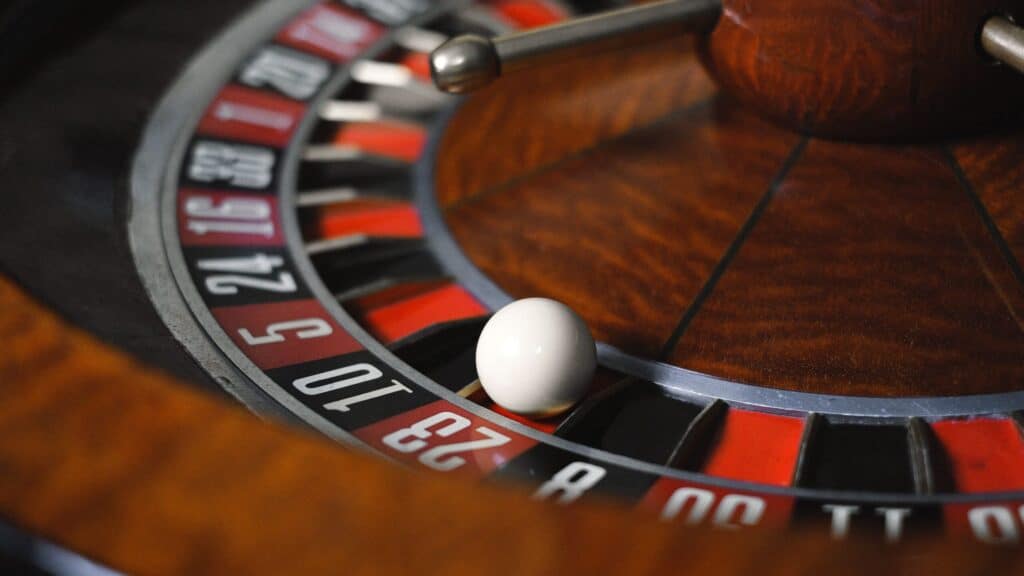Roulette, a casino game synonymous with elegance and chance, has captivated gamblers for centuries with its spinning wheel and the promise of fortune; its origins and evolution are as fascinating as the game itself, weaving through periods of mathematical innovation, social change, and gambling history.
Origins of Roulette: A Blend of Chance and Invention
The invention of roulette is often attributed to the French mathematician Blaise Pascal in the 17th century. While Pascal himself wasn't aiming to create a gambling game, his experiments with perpetual motion machines inadvertently laid the groundwork. His quest to create a machine that would operate indefinitely led him to invent a wheel that is strikingly similar to the roulette wheel we know today. This early wheel was more of a scientific curiosity than a gambling device, but it embodied the core mechanics of roulette: a rotating wheel and elements of chance.
However, the direct ancestor of the modern roulette game emerged in 18th-century France. By the late 1700s, variations of roulette were being played in Parisian casinos. These early versions were a fusion of several existing games of chance, including "Roly-Poly," "Even-Odd," "Ace of Hearts," and "Hoca." These games, popular in different parts of Europe, contributed elements of wheel spinning, betting on numbers or colors, and various payout structures to what would become roulette.
The first known roulette game was played in Paris in 1796 at the Palais Royal. This early roulette wheel already featured the numbered pockets, alternating in red and black, though with only single zero. Descriptions of roulette from this period, such as in Jaques Lablee's novel "La Roulette, ou le Joueur" (1801), detail a game remarkably similar to contemporary roulette, solidifying its presence in French gambling culture by the turn of the 19th century.
The 19th Century: Standardization and Spread
The 19th century was pivotal in the evolution of roulette, marked by standardization of rules and its spread across Europe and then to America. In its early Parisian form, the roulette wheel had both a single zero (0) and a double zero (00). However, in the 1840s, French brothers François and Louis Blanc made a significant change. Legend has it that, possibly to compete with other casinos, or perhaps driven by a mathematical insight, they introduced a single-zero roulette wheel in 1843 at the casino in Bad Homburg, Germany. This single-zero wheel significantly improved the odds for players, making the game more attractive.
The single-zero roulette quickly gained popularity across Europe, contrasting with the double-zero versions still common in Paris and elsewhere. By the mid-19th century, roulette had become a staple in European casinos, particularly in Monte Carlo, which emerged as a gambling mecca. The game's association with Monte Carlo cemented its image of sophistication and high-stakes gambling.
Roulette's journey to America began in the early 19th century, arriving in New Orleans with French immigrants. However, the American gambling scene adapted roulette to suit local preferences. American casinos largely adopted the double-zero wheel, which increased the house edge. They also simplified the betting layout and rules, sometimes adding an American Eagle slot on the wheel in some early versions, further increasing the house advantage. This adaptation resulted in the divergence between European and American roulette, a distinction that remains today.
20th Century: Diversification and the Digital Age
The 20th century saw roulette further diversify and adapt to changing times. While European and American roulette remained the dominant forms, regional variations and rule modifications emerged in casinos worldwide. Casinos in Britain, for example, often featured European roulette but with rule tweaks affecting betting limits and certain payouts.
The late 20th century marked the beginning of roulette's digital transformation. With the advent of computers and the internet, online casinos began to appear in the 1990s. Roulette was among the first casino games to transition to the online format. Online roulette brought convenience and accessibility, allowing players to enjoy the game from their homes at any time. This digital shift also led to innovations in game presentation, with online casinos offering various visual styles and interfaces.
Furthermore, the digital age facilitated the creation of new roulette variations. Online casinos weren't bound by the physical constraints of land-based casinos, allowing for experimentation with rules and formats. This era saw the rise of mini-roulette (a smaller wheel with fewer numbers), multi-wheel roulette (playing on multiple wheels simultaneously), and live dealer roulette (combining online play with live video streaming of a real dealer and wheel). These digital variations catered to different player preferences, adding layers of excitement and novelty to the classic game.
Types of Roulette Games: European, American, and Beyond
Today, the most common forms of roulette are European and American Roulette, primarily distinguished by the wheel layout. European Roulette features a single zero (0) and numbers 1 to 36. The numbers 1 to 36 alternate between red and black, while the single zero pocket is green. The single zero significantly impacts the game's odds, giving the house a lower edge of approximately 2.7%.
American Roulette, in contrast, includes both a single zero (0) and a double zero (00), in addition to numbers 1 to 36. Like European Roulette, numbers 1 to 36 alternate between red and black, while both zero pockets are green. The addition of the double zero increases the house edge to approximately 5.26%, nearly double that of European Roulette. This higher house edge makes American Roulette statistically less favorable for players compared to the European version.
Beyond these standard versions, numerous variations cater to diverse player preferences. French Roulette is often considered a subtype of European Roulette, played on a single-zero wheel but includes "La Partage" and "En Prison" rules. "La Partage" rule means if a player makes an even-money bet (like red/black, odd/even, high/low) and the ball lands on zero, the player gets half of their bet back. The "En Prison" rule gives the player the option to imprison their bet when the ball lands on zero on an even-money bet. The bet remains for the next spin; if it wins, the player gets their stake back, but no winnings. These rules reduce the house edge on even-money bets in French Roulette to about 1.35%, making it among the most player-friendly roulette variants.
Multi-Wheel Roulette, popular in online casinos, allows players to bet on multiple roulette wheels spinning simultaneously. This increases the action and potential winnings in a shorter time. Multi-Ball Roulette uses multiple balls on a single wheel, increasing the number of winning outcomes per spin. Mini Roulette features a smaller wheel with only 13 pockets (numbers 1-12 and a single zero). While it can seem less daunting for beginners, it often carries a higher house edge compared to standard European Roulette due to the payout structure adjustments.
Live Dealer Roulette bridges the gap between online and brick-and-mortar casinos. Played online, it features a live video stream of a real roulette wheel and dealer. Players place bets digitally, but the game's action is real-time, managed by a human dealer. This format combines the convenience of online play with the trust and social interaction of a live casino, appealing to players who seek a more authentic casino experience online.
Betting Strategies and Odds: Understanding the Game
Roulette offers a variety of betting options, each with different odds and payout. Bets are broadly categorized as inside bets and outside bets. Inside bets are placed on specific numbers or small groups of numbers. Examples include Straight Up (betting on a single number), Split Bet (on two adjacent numbers), Street Bet (on a row of three numbers), Corner Bet (on four numbers), and Line Bet (on six numbers). Inside bets offer higher payouts because of their lower probability of winning. For example, a Straight Up bet on European Roulette pays 35 to 1, with odds of 1 in 37.
Outside bets are placed on larger groups of numbers, offering higher chances of winning but lower payouts. Common outside bets include Color Bets (betting on red or black), Even/Odd Bets, and High/Low Bets (betting on numbers 1-18 or 19-36). Column Bets and Dozen Bets allow betting on 12 numbers at once. Outside bets typically have payouts of 1 to 1 (for even-money bets) or 2 to 1 (for column and dozen bets). For instance, betting on red in European Roulette has nearly a 50% chance of winning (18 out of 37 pockets are red, excluding the green zero), paying even money.
Various betting strategies have been devised by roulette enthusiasts, though it's crucial to understand that due to the game's inherent randomness, no strategy can guarantee long-term profits. The Martingale strategy is perhaps the most well-known, involving doubling the bet after each loss, with the idea of recovering all previous losses and making a small profit when a win occurs. However, this strategy requires a substantial bankroll and can lead to very high stakes quickly, often exceeding table limits or player's funds.
The Fibonacci strategy uses the Fibonacci sequence (1, 1, 2, 3, 5, 8, etc.) to determine bet amounts, increasing bets after losses and decreasing after wins in a less aggressive manner than the Martingale. The D'Alembert strategy is another negative progression system, increasing the bet by one unit after a loss and decreasing by one unit after a win. Conversely, positive progression strategies like the Paroli strategy advocate increasing bets after wins to capitalize on winning streaks, and reducing or resetting bets after losses.
Despite the allure of these strategies, each roulette spin is an independent event, and the odds remain constant. The house edge ensures that over a long period, the casino statistically will always have an advantage. Understanding the odds and payouts of different bets is more important than relying on betting systems. Players should be aware of the house edge in different roulette versions and choose games like European or French Roulette, which offer better odds compared to American Roulette.
Psychology of Roulette Gambling: Chance, Risk, and Thrill
The psychological aspects of roulette contribute significantly to its enduring appeal. The game inherently combines chance with elements of perceived control, creating a unique gambling experience. The anticipation as the ball spins around the wheel, the suspense as it slows and bounces between pockets, and the immediate outcome of winning or losing trigger emotional responses that are central to the thrill of gambling.
Roulette appeals to different psychological motivations. For some, it's the simplicity and clarity of the game. Unlike games with complex rules or strategic decisions, roulette is straightforward: place your bet, spin the wheel, and await the result. This simplicity reduces the cognitive load and makes it accessible to novice gamblers. For others, the social aspect of roulette in a casino environment is attractive. Gathering around a roulette table, sharing the collective excitement, and interacting with dealers and other players enhances the gambling experience beyond just the bet outcome.
The game also taps into the gambler's fallacy – the mistaken belief that past outcomes influence future independent events. Players might believe that after a series of red results, black is "due" to come up, or vice versa. This fallacy drives betting behavior, even though each spin is statistically independent and the odds remain unchanged. The visual nature of roulette, with its spinning wheel and bouncing ball, can create an illusion of patterns or predictability, further fueling such beliefs.
Risk perception and risk-taking behavior are also key psychological components in roulette gambling. The variety of betting options allows players to choose their risk level. Inside bets offer high risk and high reward, appealing to those seeking big wins, while outside bets provide lower risk with more frequent but smaller payouts, attracting players who prefer a more steady gambling style. Understanding one's own risk tolerance and gambling motivations is crucial for responsible play.
Responsible gambling in roulette, as in all forms of gambling, involves setting limits – both financial and time-based. It's about playing for entertainment within affordable means and recognizing the point where gambling ceases to be fun. Awareness of the psychological biases and fallacies associated with chance-based games like roulette is an important aspect of maintaining a balanced and enjoyable gambling experience.
Conclusion: Roulette's Enduring Legacy
Roulette's journey from Blaise Pascal's 17th-century wheel experiments to the sophisticated online and live dealer versions of today illustrates a remarkable evolution. From its 18th-century French origins to its global presence in casinos and online platforms, roulette has proven to be a remarkably adaptable game. The introduction of the single-zero wheel in the 19th century was a pivotal moment, shaping the European version and distinguishing it from its American counterpart. The digital revolution of the late 20th and early 21st centuries further expanded roulette's reach, creating new formats and accessibility.
Roulette’s enduring appeal lies in its simple yet captivating nature, blending chance, strategy, and social interaction. Whether it's the classic European Roulette, the fast-paced Multi-Wheel Roulette, or the immersive Live Dealer Roulette, the game continues to offer excitement and entertainment for gamblers worldwide. Understanding its history, variations, odds, and psychological aspects enriches the playing experience and encourages informed, responsible engagement with this iconic casino game. As gambling continues to evolve, roulette, with its rich heritage and adaptability, is likely to remain a central fixture in the landscape of chance and casino gaming for years to come.



